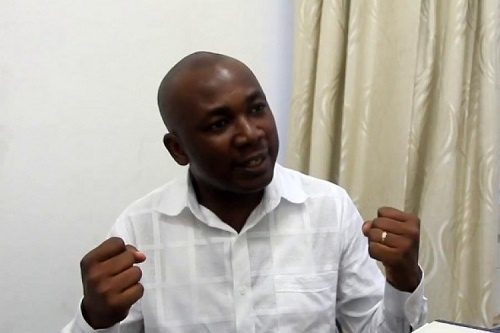Economist and professor of finance at the University of Ghana, Prof Godfred Bokpin, has asserted that the cedi can only be stabilised temporarily from further depreciation in its performance against major foreign currencies but continue slipping as has been the trajectory for decades.
He attributes this trend to the lack of a robust macroeconomic policy support for the cedi.
Speaking on Joy FM's Super Morning Show on Monday, May 13, Prof Bokpin explained that the cedi has persistently suffered depreciation since its introduction in July 1965.
He anticipates intermittent periods of relative stability but underscores the likelihood of continued depreciation, even with optimal economic measures in place.
“If we do everything right we will still expect that the cedi will depreciate by a certain margin given the relative strength of the economy.
“It's a shame that we haven't been able to provide the cedi with the necessary support through sound macroeconomics policy making, including responsible fiscal management and prudent monetary policy.
“As a result, we've denied the cedi some basic rights and then expect it to perform magic, when in reality, the cedi's behaviour is a reflection of weak underlying fundamentals”explained.
In referring to the Vice President, Dr Mahamudu Bawumia's popular phrase about the cedi's depreciation, Prof Bokpin argued that the exchange rate will expose the currency as long as the fundamentals of the economy remain weak.
Prof Bokpin mentioned that in 1964, Ghana had inflation of less than 1%. At that time, Ghana did not have its national currency and used the British West African pound, limiting its monetary control.
He said even after gaining independence, printing currency remained out of reach, until in July 1965 when the cedi was introduced. However, inflation has been a continuous challenge since then.
As of today, Monday, May 13, one US dollar averages GH¢14.5 according to Joy Business.
Analysts are envisaging a continuous weakening trajectory of the local currency as foreign exchange demand-supply disparity remains substantial.
They, however, anticipate improved liquidity conditions towards the end of quarter two of 2024 after the International Monetary Fund (IMF) board approves the second review of Ghana’s programme. This will lead to a tranche disbursement of US$360 million under the IMF programme.
Latest Stories
-
Gold Fields Ghana Foundation challenges graduates to maximize benefits of community apprenticeship programme
18 mins -
GBC accuses Deputy Information Minister Sylvester Tetteh of demolishing its bungalow illegally
30 mins -
Boost for education as government commissions 80 projects
41 mins -
NAPO commissions library to honour Atta-Mills’ memory
52 mins -
OmniBSIC Bank champions health and wellness with thriving community walk
54 mins -
Kora Wearables unveils Neo: The Ultimate Smartwatch for Ghana’s tech-savvy and health-conscious users
58 mins -
NDC supports Dampare’s ‘no guns at polling stations’ directive
1 hour -
Police officer interdicted after video of assault goes viral
1 hour -
KNUST’s Prof. Reginald Annan named first African recipient of World Cancer Research Fund
1 hour -
George Twum-Barimah-Adu pledges inclusive cabinet with Minority and Majority leaders
2 hours -
Labourer jailed 5 years for inflicting cutlass wounds on businessman
2 hours -
Parliament urged to fast-track passage of Road Traffic Amendment Bill
2 hours -
Mr Daniel Kofi Asante aka Electrician
2 hours -
Minerals Commission, Solidaridad unveils forum to tackle child labour in mining sector
2 hours -
Election 2024: Engagement with security services productive – NDC
2 hours

